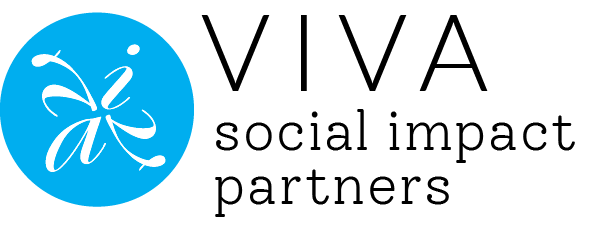3 min read
Partnerships in Action: How Help Me Grow LA is Expanding Equitable Access to Developmental Health Resources
Katy Nagy
December 16, 2024
Blog

Since 2021, VIVA Social Impact Partners has proudly collaborated with First 5 LA to support Help Me Grow LA (HMG LA). This initiative is designed to ensure that all young children in Los Angeles County have access to critical developmental health resources, starting with screenings for developmental delays, timely referrals to service providers, and the effective delivery of services within a well-functioning early identification and intervention (EII) system.
Why Early Intervention Matters
Early intervention is vital because the first five years of a child’s life are a critical window for brain development. Identifying and addressing developmental delays early can significantly improve a child’s lifelong outcomes, from academic success to social-emotional well-being. These efforts ensure that children and families are equipped with the tools they need to thrive.
Adapting to a Changing Landscape
The importance of this work is heightened by Medi-Cal reforms that establish new minimum standards for developmental screenings and mandate closed referral loops. These changes underscore the need for cohesive, collaborative systems to meet these standards and ensure equitable access to care.
First 5 LA’s commitment to HMG LA includes investments in developing a strong EII system throughout Los Angeles County. Over the past three years, VIVA has supported two key efforts under HMG LA:
- A place-based approach called Pathways that focuses on enhancing collaboration and capacity among community-based organizations and their partners in order to strengthen referral processes in seven communities across the county.
- A pediatric medical practice approach, through a HMG LA - L.A. Care Partnership, which is aimed at increasing developmental screenings and referrals in pediatric medical practices while improving provider and community education about child development and the importance of screenings.
Together, these efforts are transforming how children access and benefit from developmental health resources.
Three Key Insights from Our Work
Our experience with community-based organizations (CBOs), medical providers, and partners across both of these initiatives has highlighted the transformative power of collaboration. Here are three insights that can guide future efforts to strengthen early identification and intervention systems:
1. Cross-Sector Collaboration is Necessary but Requires Education
Strong partnerships between sectors—such as healthcare, early childhood education, and community services—are critical. However, they thrive only when stakeholders share a deep understanding of early childhood development, available resources, and effective screening protocols.
- From Pathways, we learned that providers need education on early childhood development and early intervention to establish the foundation for meaningful collaboration.
- The L.A. Care partnership reinforced this through effective outreach and education strategies, which helped providers engage more deeply in referral processes.
2. Technology is a Powerful Catalyst but Not a Standalone Solution
Technology can streamline information sharing and improve referral systems, but its success depends on collaboration and partner buy-in.
- In the Pathways project, agencies adopted new tools to enhance data sharing and referrals. However, consistent usage required significant capacity building, change management, and updated workflows to secure partner commitment.
- Working with practices in the L.A. Care partnership underscored this need, as clinics exploring electronic referral tracking and embedding screening data into electronic medical records (EMRs) saw the potential for more effective coordination, but needed time to integrate these tools fully.
3. Investing in Partnerships Yields Long-Term Impact
Building strong partnerships requires intentional investment in resources. In both initiatives, coaching and technical assistance have been critical in helping lead agencies identify and sustain partnerships, bolstering their capacity to address systemic challenges. These efforts have resulted in measurable improvements, including:
- Increased developmental screenings for participating practices in the L.A. Care partnership. For example, one cohort saw a 593% increase in average monthly screenings over an 18-month period, and the second cohort saw a 57% increase over a 7-month period.
- A broader network of referral partners.
- Greater knowledge of early identification and intervention (EII) among providers and community members. For instance, 98% of parents that attended child development classes through the L.A. Care partnership reported improved knowledge of child development and comfort in advocating for their children.
Results and Looking Ahead
The impact of these initiatives is clear: more children are being screened for developmental delays, more partners are engaged in connecting families to services, and communities are better equipped to support equitable access to developmental health resources. These outcomes demonstrate that collaboration, education, and investment are key to building systems that ensure every child has the opportunity to reach their full potential.
For partners engaging in CalAIM Enhanced Care Management (ECM) who are aiming to build partnerships and strengthen your referral pathways, VIVA is an approved Vendor in the PATH TA marketplace.
If you are looking to build your capacity for implementing ECM activities or want to strengthen your early childhood development initiatives, we invite you to connect with us. Let's strengthen the systems that make a lasting difference for children and families.
